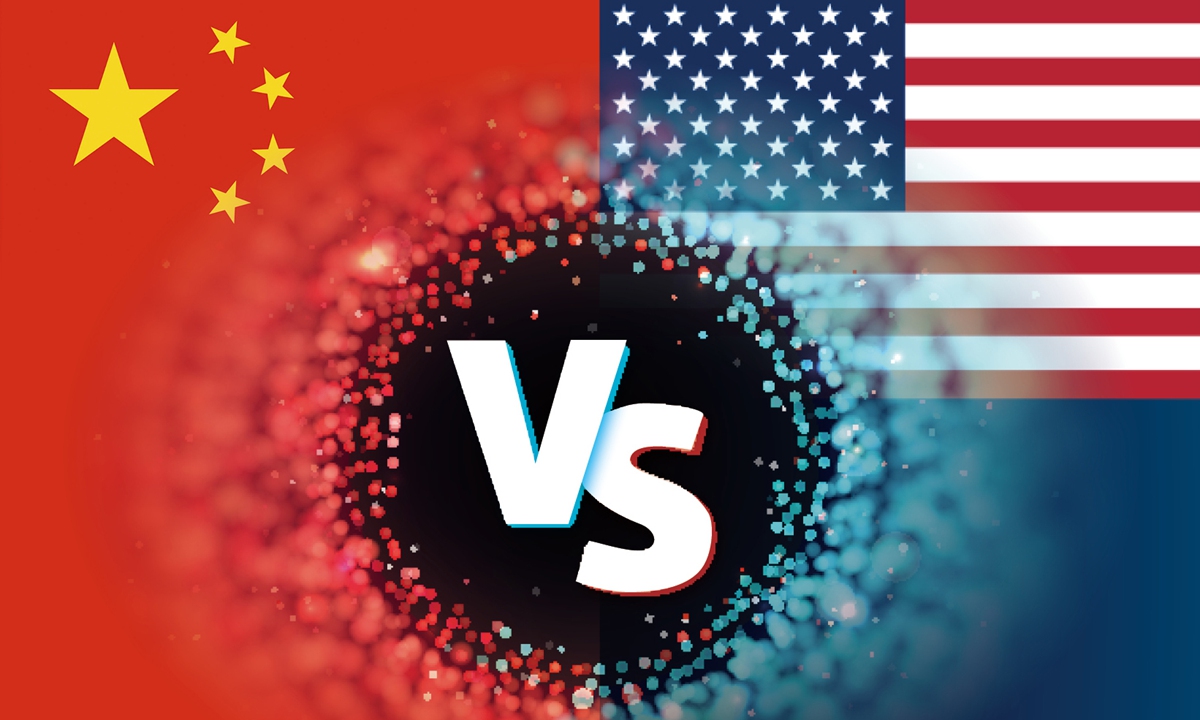US-China hot war hype scary hot air
By Wang Wen Source: Global Times Published: 2020/8/10 18:04:10

Photo: Xiong Xiaoying/GT
Worry has been spreading within international public opinion fields - that a hot war between China and the US is about to break out. There have been rumors and speculation going around that the US could neutralize some of China's island bases in the South China Sea. Others say a military conflict may spark accidentally.Journalists have been interviewing scholars over the topic what, "if a war breaks out." There have even been rumors that some Chinese people are sharing the knowledge of civil air defense in their WeChat Moments. Anxiety is lingering.
But I have a cautious and optimistic judgment - in the foreseeable future, no hot war will break out between China and the US. Even the possibility of a new cold war is not high. Worries about a hot war stem from an alert toward possible dangers.
To boost his approval rate, the Trump team has been desperately hyping up China-related topics, ranging from Xinjiang and Hong Kong to Huawei and TikTok. Today's prophecy might come true if they go completely mad and the US president presses the button of war one day.
But the Chinese military is prepared for worst-case scenarios. When President Xi Jinping inspected the Chinese People's Liberation Army in 2012, he emphasized that the army must prepare for war at any time. The modernization of the Chinese military is one of the most forceful reforms the country has seen in many years.
From this perspective, if a military conflict does occur, the US can hardly seek many advantages over China. The most powerful moment of the US military to realize this may have been in the Korean War between 1950 and 1953. At that time, US troops, along with the United Nations Command, had a fight with Chinese military - and this was just after New China was founded and had yet to develop. But the US could hardly claim an outright victory.
Now, the Chinese military has the strength to deter US military in Western Pacific. Every American general with war experience will deliberate the situation carefully. I believe Trump is a rational leader and tend to think he is a great talker to manipulate public attention. But he is not a doer when it comes to a real war.
Iran shot down a US unmanned aerial vehicle in June 2019. It also carried out ballistic missile attacks on US bases in Iraq early this year in the name of retaliation for the US killing of General Qasem Soleimani. But the Trump administration did not retaliate.
People will die in a war. Don't believe in the war hawks in the US. Are their family members willing to be sent to the battlefield?
A hot war means cutting off ties. The American people cannot spend even a day without Chinese goods. When anti-war voices in the US are even louder than they were during the Vietnam War era, can Trump still be re-elected?
Although I don't think a hot war will break out between China and the US, it does not mean I believe a turnaround will take place in bilateral relations. On the contrary, the US will continue to contain China.
Look at how the US has sanctioned Russia in the past decade. The US has a number of tools to suppress China, such as sanctioning more senior Chinese officials, sanctioning the finance sector and core military industrial companies, revoking the sales license of Chinese companies in the US, and restricting the export of more US technology to China. It can cease issuing visas to Chinese diplomats and close more consulates. The US has not used these means. A hot war with China is still far away from reality.
However, many Chinese people still feel anxious about US' suppression of a rising China. On the one hand, they have been mulling how to take countermeasures which will maintain the general framework of China-US relations. On the other hand, they also want to prevent the US government from playing the China card too hysterically.
Hyping the possibility of a hot war hurts domestic investment, economic reforms, public's mentality and social stability of the two countries.
The author is professor and executive dean of the Chongyang Institute for Financial Studies at Renmin University of China, and executive director of China-US People-to-People Exchange Research Center. wangwen2013@ruc.edu.cn
Posted in: COLUMNISTS,VIEWPOINT